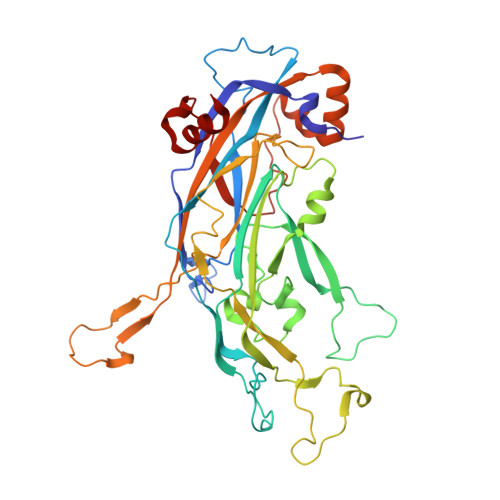Structural basis of oligosaccharide receptor recognition by human papillomavirus.
Dasgupta, J., Bienkowska-Haba, M., Ortega, M.E., Patel, H.D., Bodevin, S., Spillmann, D., Bishop, B., Sapp, M., Chen, X.S.(2011) J Biological Chem 286: 2617-2624
- PubMed: 21115492
- DOI: https://doi.org/10.1074/jbc.M110.160184
- Primary Citation of Related Structures:
5W1O, 5W1X - PubMed Abstract:
High risk human papillomavirus types 16 (HPV16) and 18 (HPV18) can cause cervical cancer. Efficient infection by HPV16 and HPV18 pseudovirions requires interactions of particles with cell-surface receptor heparan sulfate oligosaccharide. To understand the virus-receptor interactions for HPV infection, we determined the crystal structures of HPV16 and HPV18 capsids bound to the oligosaccharide receptor fragment using oligomeric heparin. The HPV-heparin structures revealed multiple binding sites for the highly negatively charged oligosaccharide fragment on the capsid surface, which is different from previously reported virus-receptor interactions in which a single type of binding pocket is present for a particular receptor. We performed structure-guided mutagenesis to generate mutant viruses, and cell binding and infectivity assays demonstrated the functional role of viral residues involved in heparin binding. These results provide a basis for understanding virus-heparan sulfate receptor interactions critical for HPV infection and for the potential development of inhibitors against HPV infection.
- Department of Molecular and Computational Biology, University of Southern California, Los Angeles, California 90089, USA.
Organizational Affiliation:


















